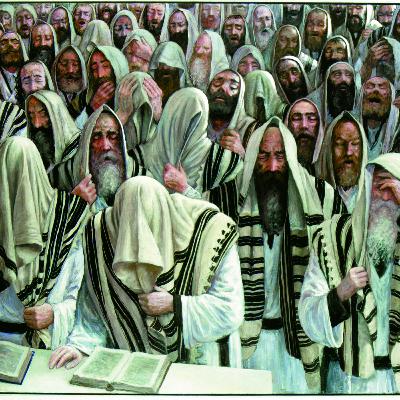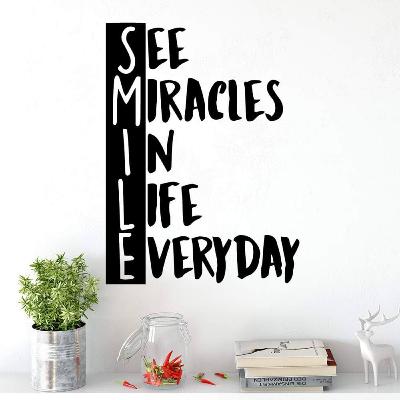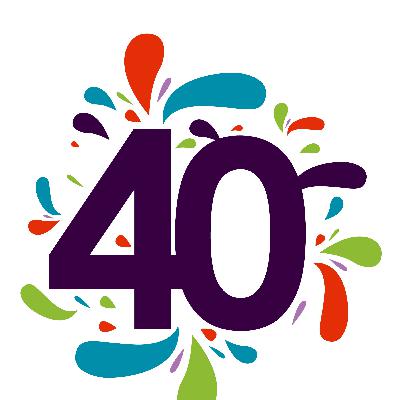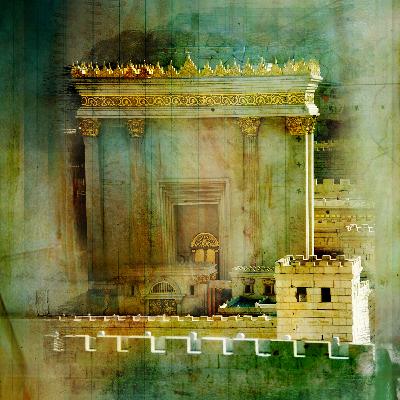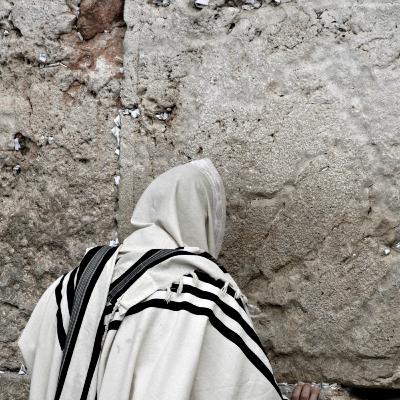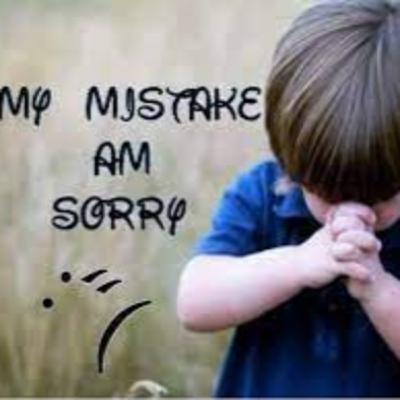Discover Online Torah Classes with Rabbi Mendy Goldberg
Online Torah Classes with Rabbi Mendy Goldberg

Online Torah Classes with Rabbi Mendy Goldberg
Author: Rabbi Mendy Goldberg
Subscribed: 4Played: 345Subscribe
Share
© Rabbi Mendy Goldberg
Description
Torah Classes on a variety of subjects, including the weekly Torah portion, meditation, the afterlife, and contemporary Jewish ideas. These classes will give you the tools to have a more meaningful and spiritual whole life.
These are live recordings of classes given at Lubavitch of the East End.
For more information visit www.Jewishli.com or info@Jewishli.com
These are live recordings of classes given at Lubavitch of the East End.
For more information visit www.Jewishli.com or info@Jewishli.com
263 Episodes
Reverse
Why The Drama?What’s Kol Nidrei all about?Kol Nidrei is the most well-known prayer. It has become a symbol of Jewish identity and fills the synagogue seats even with people who do not set foot there the entire year. But the phenomenon is puzzling: what is the connection between its stirring melody and its content? What is it in it that awakens the soul?“Kol Nidrei” is nothing more than a legal formula of annulment of vows. We declare that the commitments we took upon ourselves in the past and in the future, and have forgotten, shall be null and void.; but what in it stirs the heart to repentance?
Rosh HashanaThe way to open the gates of Heaven is to do the right action at the right time. When we turn to Hashem at the time when the gates are open and perform the precise deed that draws down the energy we need, it is possible to bring about miracles and salvations that change lives.Our sages revealed to us a wondrous secret: Rosh Hashanah is the head of the year, and on it Hashem determines the fate of us all for good and for blessing. We must observe special “signs” that symbolize the good we seek, in order to draw down the right flow at the right time.Today we want to clarify the secret of the Rosh Hashanah signs: How does it work? What is the shortcut by which an apple promises a sweet year?
TAVOSeeing the Miracles EverydayThe Land of Israel is the home and palace in which the Holy One, blessed be He, dwells. And a home is a place that is renewed at every moment. It does not endure by inertia or by memory, but rather comes into being anew together with the person who himself is renewed each morning. A person changes every day, and life is different each hour, and true love bursts forth from the personality of the present day.The task now is to repay in kind in the spiritual sense and to add anew each day. And at the threshold of a new year, we must ask how we grow today, and not stop at what we accomplished yesterday or last year.In the final part of the lesson we will speak of this: that “the Land of Israel” is an inspiration for the proper way of life everywhere, even outside the Land. The demand upon the Jew is to bring the Land of Israel with him, and to create around him an atmosphere of the Land of Israel; to direct his steps in every place in the world as though he were now in Jerusalem.
TEITZEIWith Faith We Will Prevail We explore the themes of faith, resilience, and the significance of Psalm 27 during the month of Elul. The ongoing struggles faced by individuals and nations, drawing parallels between personal challenges and larger conflicts. Through the story of Sapir Cohen, who found strength in Psalm 27 during her captivity, the discussion emphasizes the power of faith in God. The conversation also delves into the 13 attributes of mercy, King David's trust in G-d during crises, and the importance of maintaining a positive outlook as one prepares for the High Holidays.
SHOFTIMYou Be the JudgeNo, really, you are the judgeThe month of Elul begins and we are all filled with desire for change, but we are also tired of past “Eluls” that led nowhere. We are exhausted from attempts to improve that did not succeed and from problems that have grown old with us.To succeed in truly effecting change, we must examine the ways in which we act and ask whether we are using the right tools, or whether we are wasting energy when it is already too late. Some make the error of fighting a rearguard battle after the complications and problems have already broken out and gone into action, instead of preventing them from rising in the first place. The goal of today’s lesson is to examine the initial trigger that creates the complications, and when that trigger is prevented - most of the problems do not arise at all.
RE'EHSeeing Life's ChoicesAs Moshe gives his last will and testament to the Jews before entering the dessert. He tells them SEE the choices you have, blessings and curses. How can the blessings and curses run along to one another , while they are two opposing ideas and ways of life?What was Moshe giving the Jewish people?
EIKEVSecret of the Number FortyWe will explore the secret and power of the number forty, and we will do this by examining one of the great idea in the Torah: Moses's ascent to heaven three times, where each time he ascends for forty days and lives there as a hybrid creature - half human and half angel. The obvious question is: why did it take so long? Why did the G-d, perform such an enormous miracle that required Moses to breathe like a human being, but live like an angel without food or sleep for forty days?"This appears to be the beginning of a theological or mystical discussion about the significance of the number 40 in Jewish tradition, specifically focusing on Moses' three 40-day periods on Mount Sinai when he received the Torah. This sets up an inquiry into why this particular duration was necessary and what spiritual significance it might hold.
DEVARIM - NINE DAYSMaking It HappenWhat else could possibly happen for us to see Moshiach’s arrival? We are standing at the end of a year of wonders, in which, alongside the deep pain, we touched the heavens day after day. In the last twelve months alone, many of our greatest arch-enemies have been eliminated or neutralized, many in an astonishingly wondrous fashion.The feeling was that G-d was shining His face upon us and that we were closer to redemption than ever before.But Moshiach didn’t come, and we feel like we are on a rollercoaster, being flung and slammed wildly. Soldiers are still dying in Gaza, antisemitism is still rampaging across the world…so what is happening?If it hasn’t come until now—what needs to happen for it to finally arrive?
DEVARIM - NINE DAYSMaking It HappenWhat else could possibly happen for us to see Moshiach’s arrival? We are standing at the end of a year of wonders, in which, alongside the deep pain, we touched the heavens day after day. In the last twelve months alone, many of our greatest arch-enemies have been eliminated or neutralized, many in an astonishingly wondrous fashion.The feeling was that G-d was shining His face upon us and that we were closer to redemption than ever before.But Moshiach didn’t come, and we feel like we are on a rollercoaster, being flung and slammed wildly. Soldiers are still dying in Gaza, antisemitism is still rampaging across the world…so what is happening?If it hasn’t come until now—what needs to happen for it to finally arrive?
SUKKOT
A G-dly Embrace
Why is Sukkot celebrated in the fall, after the High Holidays?
What are we actually commemorating?
As we explore the mystical meaning of the Holiday of Sukkot we will come to appreciate the G-dly embrace we each receive during the festival of Sukkot.
YOM KIPPUR
CHANGING THE PAST
‘Pretend it never happened.’
Many times that’s our first instinct when we are faced with conclusive proof of our own misdeed.
We wish we could sweep those ugly moments under the rug, or perhaps turn back time; but we can’t.
So what are we to make of a transgression we’ve committed?
We’re not just talking about how to learn from the mistake, or how to nor repeat it.
We are asking, if it’s possible to rectify those moments in the past.
And if yes, how?
Transgressions are not accidents that need to be stuffed in a drawer, but rather a call from heaven for a new beginning. A transgression is an opportunity sent from above to step on painful spots and thereby energize the strongest thirst and longing for creating fundamental change.
ROSH HASHANA
How To Raise Great Children
Rosh Hashanah is the Day of Judgment, on which our fate is decided for the upcoming year. An intriguing fact is that among all the requests and needs, the request for children is placed at the center. This is particularly evident in the two Torah Readings and the two Haftorahs on the two days of Rosh Hashanah.
While on all the Holidyas we read about the day's themes, Rosh Hashanah stands out as an exception: the reading for the second day does indeed discuss the Akedah which is related to the theme of judgment, but the reading for the first day and both Haftorahs on the two days focus on a personal and intimate theme: parents and children.
Since this is the case, we want to delve into the secrets of the two women from the two Haftarot: How does one merit the miracle of having wishes granted as they did? How did Chana merit to give birth to and raise a giant of a son like Shmuel Hanavi? And what in Rochel's actions earned her the immense and greatest promise of all— the redemption of the children, And the children shall return to their homes?
NITZAVIM
G-D Believes In You.
The power of sincerity lies therein that it cannot be faked; or at least not easily.
Try reading a scripted apology to a friend you’ve hurt – it’s not going to go over well.
But what if you’ve become a pro at sincere routines? Is that still genuine enough to count?
Each year on Rosh Hashana we promise Hashem the world; ‘ I will change – I promise’ ‘This time it’s for real’ and then of course, life derails our plans to varying degrees and one year later we are back making promises we already didn’t keep once.
Which begs the question:
how do we do this with a whole heart? How can we commit to accepting the yoke of Heaven on Rosh Hashanah? After all, we’ve tried ten times and have not succeeded.
G-d believes in us because we truly do intend to change. In that moment we truly are sincere and wholehearted, notwithstanding our checkered past and broken promises.
TAVO
The Hardest Word to Pronounce
We live in a generation that does not admit to mistakes.
Therefore, we must elaborate on one of the fundamental principles of the mitzvah of repentance: the recognition that I am responsible! The understanding that I am responsible for my choices.
Responsibility means that no force in the world – external or internal – can make me do something I do not want to do, and if I did something, it is because this is the place where I am comfortable being.
This understanding does not weaken but, on the contrary, grants immense power to correct. It keeps control in my hands and says that if I made a mistake, I will also know how to rise and change. On the other hand, the opposite perception, which attributes my actions to others, ties me to the actions of others and eternally entangles me in the cycle of sin.
TZEITZEI
How To Win The War
The Torah frames our reality in just one word at the beginning of our Parsha:"When you go out to war over your enemies, Hashem your G-d will deliver them into your hands." Over your enemies&—not against or facing your enemies.
Our Chassidic Masters explain this important detail as follows: this is the secret of all secrets: there is no comparison between us and the enemy. This is not a struggle between two equal forces where sometimes one wins and sometimes the other, but a battle between holiness and a facade, between truth and a temporary test designed to make us rise beyond ourselves. Therefore, it is promised that if we go to war with divine confidence and are worthy of miracles—we will win.
This applies both to the general war and to the personal war against the internal enemy: we get swept away and drawn by the allures and temptations of pleasure produced by the evil inclination, out of fear that we are missing out on real pleasure. But the truth is that it is a test and a springboard to reveal the inner strengths of the Jew. The evil inclination itself is a holy divine creation, meant to lead to victory in the realization of the purpose of creation. Therefore, all that is required is to close our eyes and ears, leap over it, and immediately discover how all that is a just lie.
SHOFTIM
Is Change Even A Possibility?
It’s that time of year again. Elul. Shofar. Teshuva, but can you really expect anything to change from last year?
You gave it your best shot last time around, yet here you are again; a year later and not better than you were.
How can we keep giving it our best shot without falling for the worst kind of cynicism?
Here's a novel way to look at things: In Elul, we ought to dream big and act small. On one hand, we should take on significant additions—things that are truly difficult for us—but on the other hand, these changes need to be gradual and achievable, so that they can last over time.
REE'H
How To Create Wealth
A fundamental shift in understanding is needed: we do not allocate tithing; rather, we transfer the money to those to whom it belongs. The money for tithing does not belong to us. It is temporarily held with us as a deposit until we transfer it to its true destination. Therefore, when we do our work as honest bankers, Hashem transfers more funds for us to manage.
We also know that tzedakah is strongly associated with Elul, and Rosh Hashana, but the question is, what is the power of tzedakah?
Repentance, for instance removes sin and turns a person into someone deserving.
Prayer, awakens the love between Hashem and His children and creates a desire for them.
But what does tzedakah accomplish more than other mitzvos?
The Rebbe develops an important idea: tzedakah changes the considerations in judgment and introduces a new value: Mercy ; Just as the giver of charity does not scrutinize the righteousness of the act and gives to the poor simply because there is a weak person in need, so too does it awaken mercy in heaven, to ease the judgment and prioritize the needs and life of the individual.
After all, each one of us is poor in judgment, not unlike how the person on the street corner is poor in money.
EIKEV
Does G-D Love Me?
Feeling truly in harmony with Hashem. How do we stop arguing with G-d and truly believe in the goodness of His intentions? How do we begin to love Him &"with all our heart," with complete trust that G-d is our best friend, working to build our lives in the best way possible?
This week and last week, we receive two of the most important mitzvos in Judaism; last week, we received the "Shema Yisrael" portion, and this week we receive the "V’haya Im Shamoa" portion.
At the center of these two portions stands an incredible commandment, which it wouldn't be an exaggeration to say is one of the most challenging to fulfill: Loving Hashem with all one’s heart and might.
Despite the fact that the vast majority of the mitzvos are practical, and that Judaism is characterized by its focus on what you do rather than how you feel, there are still a few commandments that address emotions, with the first among them being the love of G-d. A Jew is required to love G-d with all his heart and soul.
VAETCHANAN
Honor Thy Parents
Parents are the people to whom we owe everything: our very existence and everything we have achieved. They dedicated precious years and endless resources—at the expense of their personal comfort—to raise us.
Honoring parents is also a continuous duty and involves effort on the part of the children. It applies day and night, when there is time and when there isn’t, when it is convenient to do so and when it isn’t. It requires keeping quiet and not responding with insolence even if we may feel slighted.
And the main challenge is in the later years when parents become dependent on their children.
Specifically, honoring parents presents three challenges: First, qualitative honor. To provide parents with what they need out of a feeling of joy and privilege, something that will honor and elevate them and not, G-d forbid, make them feel as a burden upon their children.
Indeed, the Gemara places an emphasis on treating parents with dignity and honor, not merely on the act of giving itself.
For the past several days we have been inundated with doomsday prophecies that a major attack from the Iranians is set to happen on Tisha Be’Av. Scholars from Iran plan to exploit the negative energy of this day to harm us, G-d forbid. Other reports suggest that the attack will occur in the coming days, within the Nine Days, causing every heart to tremble given the inauspiciousness of these days.
The reality is that we are witnessing the light of redemption shining through the veil. What is happening with us in recent days is nothing less than the fulfillment of a wonderful prophecy by the prophet Zechariah, which has puzzled commentators for thousands of years. Zechariah prophesies that the days of fasting are destined to become days of joy and gladness. All the commentators are baffled about how days of destruction can turn into days of joy? What will we celebrate?
Practically, what do we need to do to pass the war in the safest and most peaceful way and emerge victorious.


